commentary Commentary
Commentary: 20 years later, Hong Kong an embattled one city, two people
Hong Kong may have benefitted economically from the “one country, two systems” formula. But events from its 20th anniversary suggest simmering tensions beneath the surface, says Chong Ja Ian.
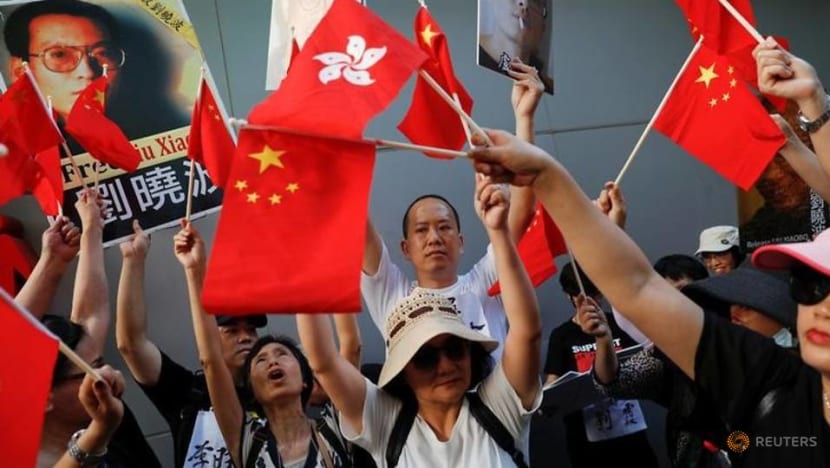
Pro-China protesters raise their flags right in front of pro-democracy protesters holding posters as two groups face in central Hong Kong, China, as the city marks the 20th anniversary of the city's handover from British to Chinese rule, June 30, 2017. (Photo: REUTERS/Damir Sagolj)
SINGAPORE: Last week marked the 20th anniversary of the handover of Hong Kong to China.
As the lavish ceremony with a spectacular fireworks display over Victoria Harbour was taking place, police were apparently rounding up pro-democracy protesters. Many ordinary people from Hong Kong who work regular jobs continue to fret about ever being able to afford housing, while tycoons and well-heeled professionals extol Hong Kong’s bountiful commercial opportunities.
These events reflect the starkly divergent perspectives on Hong Kong and persistent tensions that continue to pull at the territory from different sides, 20 years after its handover from British to Chinese rule.
The future of Hong Kong seems more unclear than ever two decades on, and this perhaps reflects some of the questions surrounding China and its relationship with the rest of the world, as well as the growing divide in the city.
HONG KONG’S TREMENDOUS GROWTH IN 20 YEARS
Optimists about Hong Kong’s development since 1997 and its future point to the shiny skyscrapers and fancy apartment blocks that have come to cover ever more of the territory. These buildings represent the massive amounts of money flowing between Hong Kong and the rest of China.
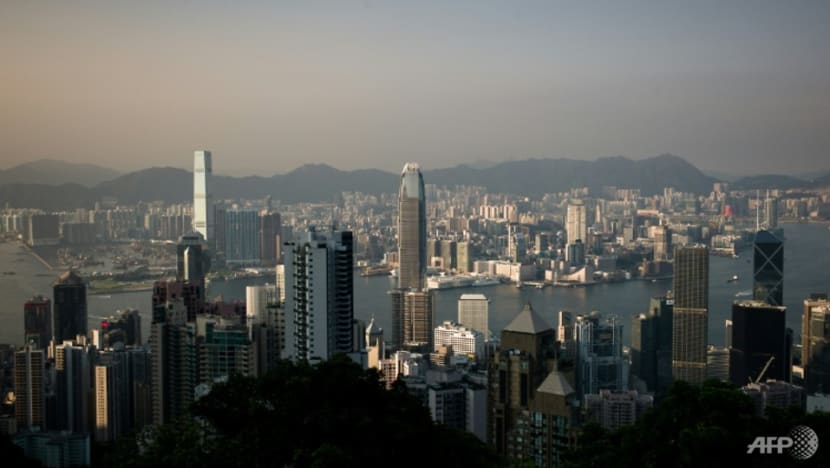
This sum has only grown since the handover, fuelled by high-end services, sophisticated financial products, real estate potential, as well as the aura of safety and stability that Hong Kong offers.
Economic numbers underline Hong Kong tremendous growth since 1997, with GDP growing from about HK$1.3 trillion (US$170 billion) in 1997 to roughly HK$2.5 trillion in 2016. Such trends seem set to continue with Hong Kong’s position as one of the world’s largest offshore Renminbi clearing houses, China’s One Belt One Road initiative, and the completion of the Hong Kong-Zhuhai-Macau Bridge, all of which will bring business to Hong Kong.
Unsurprisingly, people tied to the commercial and political elites in the territory and elsewhere in China, who are the biggest beneficiaries after the handover, tend also to be more closely associated with such rosy views of the past 20 years.
DESTRUCTION OF THE FAMILIAR
Those worried about Hong Kong’s trajectory look at the incessant construction and mushrooming buildings, and see not just skyrocketing property prices that they can never hope to afford, but also the destruction of what they know.
Old districts, community landmarks, villages and farmland have been cleared to make space for unrelenting property development, and with this accompanies the displacement of people and the familiar. Even the ubiquitous tea houses and street-side food stalls are not spared as more and more close, often citing higher rental prices.
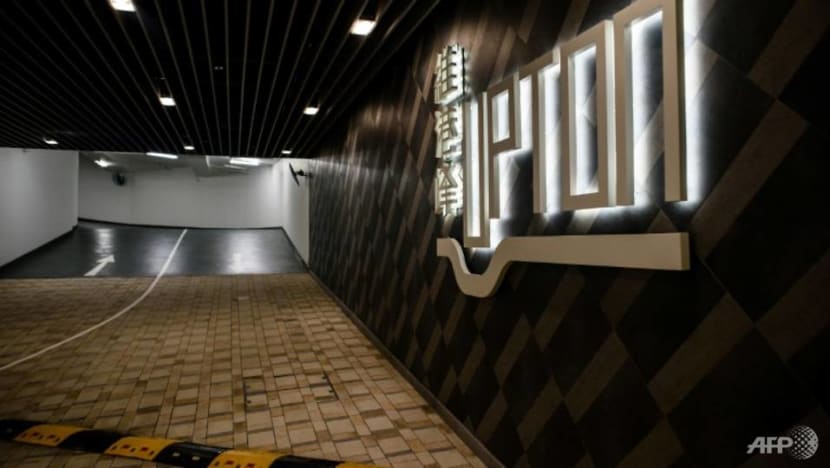
With Beijing calling for Hong Kong to reflect greater “Chinese-ness”, already embattled Hong Kong residents who do not have access to the halls of power and high finance feel increasingly alienated in the place they are supposed to call home.
The corresponding wane in emphasis on Hong Kong’s distinctiveness and the declining use of Cantonese in education, official business and the media have hit many regular Hong Kong residents hard.
Allegations of media control, cases of high-level corruption, reports of excessive use of force by police, the disqualification of elected legislators and kidnappings of individuals in Hong Kong rumoured to be carried out by Chinese agents make those already disappointed with the application of “one country, two systems” even more disgruntled.
TWO GROUPS OF HONG KONG RESIDENTS
If a key part of politics concerns regulating society and the distribution of social costs and benefits through the mediation of different interests, then this is where the two groups of people in Hong Kong described above collide.
Rich and well-connected beneficiaries of the system have little incentive for substantive reforms. This first group enjoys disproportionate influence through their links to pro-establishment political parties and constituencies that form a persistent majority in the legislature.
These same interests likewise dominate the election committee that selects the Chief Executive. Given their influence over laws and Hong Kong policies, it is little surprise that Hong Kong elites support the status quo.
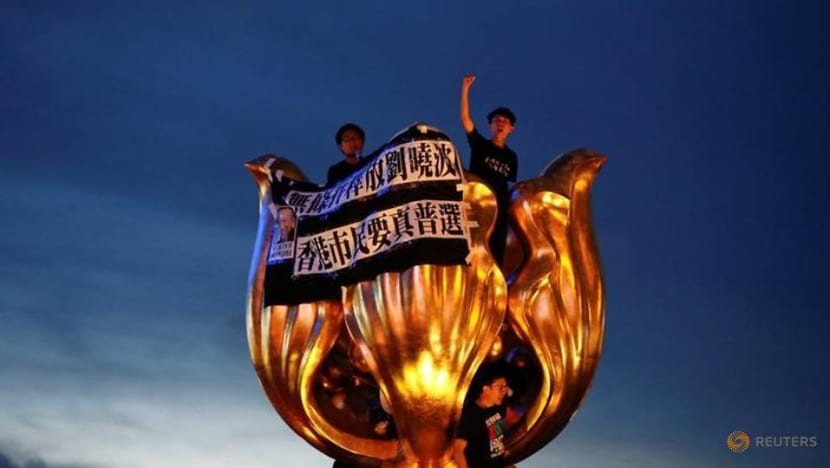
Regular Hong Kongers who aspire to a greater representation of their interests settle for the ability to block what they see as the most egregious laws and policies through protests and, in exceptional cases of constitutional amendments, the roughly one-third pan-democratic seats in the legislature.
Growing divergence in the conditions facing these two groups and their respective demands is setting the territory up for greater tensions.
BEIJING’S ROLE IN HONG KONG
Complicating matters are questions about developments in China, China’s relationship with the world, and the role Beijing plays in Hong Kong. Hong Kong’s economic success relies historically on its position at the intersection between China and the rest of the world. A slowing Chinese economy or one encumbered by serious debt problems may endanger opportunities for Hong Kong, seriously dampening the territory’s growth.
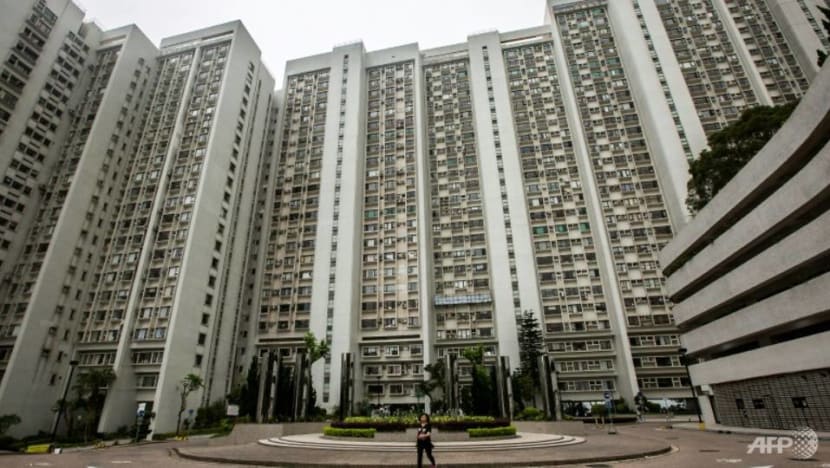
Then there is the issue of honouring international agreements, given the Chinese foreign ministry’s recent assertion that the Sino-British Joint Declaration no longer holds realistic meaning. If this represents Beijing’s openness to re-interpreting the validity of international agreements at will, it affects both China’s external relations and whether other governments accept Hong Kong as a separate juridical entity deserving of special treatment, as is the case currently.
Casting doubt on existing political arrangements involving Hong Kong may severely undermine Hong Kong’s position as a nexus of economic exchange, while intensifying the wariness, even distrust, many ordinary Hong Kongers feel toward their political system and the Beijing government.
This could intensify local dissatisfaction, inviting more direct Chinese involvement and with it a corresponding social backlash, paving the way for greater friction, perhaps even confrontation.
Hong Kong, which for so long stood at the crossroads between China and the world, now sees itself at a key social and political juncture 20 years after the end of British rule.
Chong Ja Ian is assistant professor at the National University of Singapore’s Department of Political Science.














